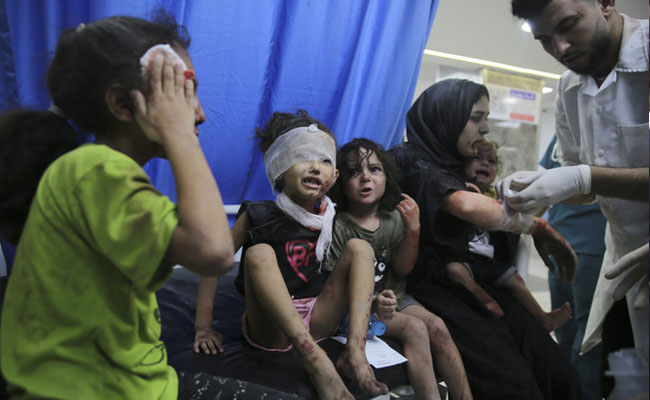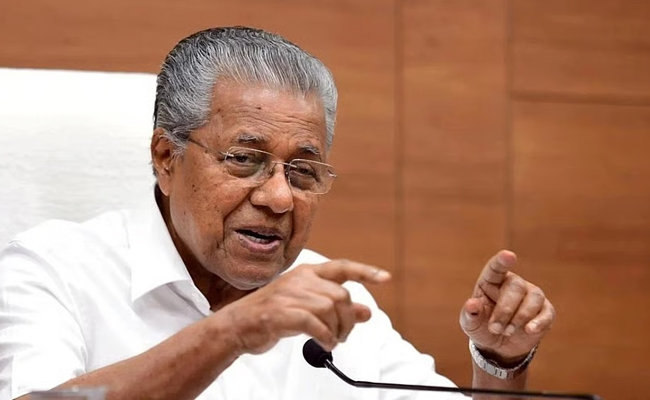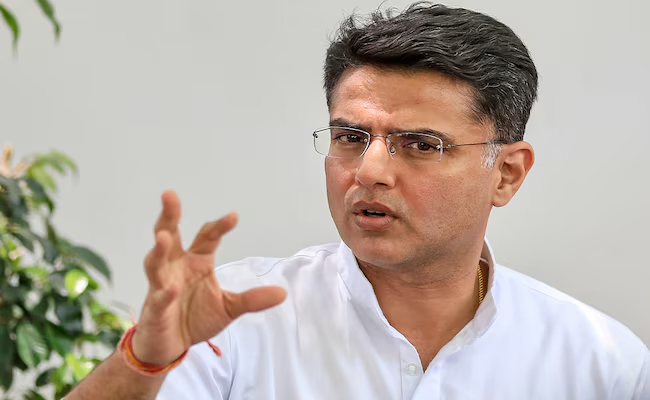Bath (UK) (The Conversation): Children living in Gaza have never known anything but overcrowding, shortages, conflict and danger.
It's been 18 years since the then Israeli prime minister, Ariel Sharon, moved all Israel's settlers and military personnel out of the Gaza Strip. The country's official narrative then became that they were no longer an occupying force.
But two years later, following the election of Hamas, the Israeli government imposed a blockade on the entire Gaza Strip. So today's 18-year-olds have suffered in a state of privation for pretty much their whole lives.
Relocation of settlers and soldiers and the imposition of the blockade did not release Israel from its responsibility under international law towards the civilian population in Gaza.
According to the International Committee of the Red Cross, Israel is still "bound by certain obligations under the law of occupation". As detailed in article 55 of the fourth Geneva convention, this includes ensuring that the population of Gaza receives food, medicines and other basic goods.
But over recent days the Israeli government has tightened the blockade so that even commodities essential for survival are denied to the civilian population. As researchers on the protection of children in Gaza, we the authors of this article are receiving messages from families that they are surviving on bread and contaminated water.
The world is learning, almost in real time, about the impact on the children of Gaza of the latest siege-like conditions imposed by Israel in the wake of Hamas' attacks. The lack of water and food is inevitably affecting the young more immediately and more severely than adults.
Those children who fall sick or are injured seek treatment in a collapsing health system, with multiple facilities attacked. Those still functioning must manage an impossible level of demand along with a drastic shortage of medicine. In such circumstances many children are vulnerable to severe harm and death.
The toll of war
But it would be a mistake to assume that even prior to the current tightening of the blockade, children in Gaza enjoyed healthy lives.
Within the densely populated Gaza Strip, the health needs of children have grown exponentially due to the conditions of the Israeli blockade.
Regular exposure to direct military attacks affects both the physical and mental health of the young. Older children will have experienced six wars including the current one in their brief lifetimes (2008-9, 2012, 2014, 2021, 2022 and 2023).
Since Israel imposed its blockade in 2007 up until the current war, Defense for Children International - Palestine (DCIP), a Palestinian human rights organisation specifically focused on child rights, has counted 1,189 Palestinian children killed in Gaza by Israeli military attacks.
These wars have also created long-term threats to children's survival and wellbeing. In the aftermath of each war, Israel has tightened access to Gaza via the main commercial crossing for construction materials, generators and water.
Without these materials, it has been impossible to clear the debris fully, and to rebuild homes, schools, hospitals and public spaces. The lack of reconstruction poses severe risks to children playing outside.
A report conducted by the UN Environment Programme following the 2008-9 war highlighted the serious health issues due to the debris that would particularly affect children. Polluted water supplies, contaminated soil, extensive rubble, including exposed metal rods, have all created grave risk for the young.
Crumbling infrastructure
Blockade has also made it impossible to develop vitally needed infrastructure. The provision of clean water and adequate sewage and waste disposal requires massive investment to meet the needs of the population.
Meanwhile, the electricity shortages and shortage of sanitation structures mean that the sea in Gaza is highly contaminated by sewage and poorly treated wastewater.
With very few safe public play spaces for children, the beach is one place that many have turned to for relief. According to a 2018 report by the RAND Corporation, however, water-related diseases are a primary cause of child and infant mortality in Gaza.
Some children require complex medical care that is not available in Gaza. Under international law, children's access to adequate medical care is the responsibility of Israel. According to human rights organisations, requests for medical permits for children to access necessary care in Israel are routinely denied.
The need for rehabilitative support for disabled children grew in 2018 and 2019 when thousands of children and youth participated in demonstrations during the "great march of return".
Israeli forces responded with live and rubber bullets, killing 46 and injuring nearly 8,800 children. Many children who sustained life-altering injuries, including loss of limbs, were not granted permits to leave Gaza to receive the rehabilitative care they required.
Palestinian doctors, nurses, other medical practitioners, social workers and civil society organisations have spent 16 years doing their utmost to provide for the health and wellbeing of Palestinian children in Gaza under blockade.
Despite multiple evacuation orders from the Israeli military in the past week, hospital staff continue to work around the clock to save lives. Yet health workers and facilities are under attack. Meanwhile DCIP is reporting that in the past week more than 1,000 Palestinian children have been killed.
It must be understood that Israel's actions in the last week - termed as "ethnic cleansing" by UN human rights officials - are an extension of 16 years of killing both children's bodies and their hopes through its blockade.
Let the Truth be known. If you read VB and like VB, please be a VB Supporter and Help us deliver the Truth to one and all.
Thiruvananthapuram (PTI): The Kerala government on Monday assured stringent action in the mob lynching of a Chattisgarh native mistaken to be a thief, and promised justice to the family, even as the ruling CPI(M) targeted the RSS over the assault, a charge denied by the BJP.
Ramnarayan (31), was allegedly beaten to death on Wednesday after being accused of involvement in theft at Kizhakeattappallam near Walayar in Palakkad district.
With the issue sending shock waves across the state, Chief Minister Pinarayi Vijayan on Monday described the incident as "deeply disturbing".
Assuring justice to his family, who have arrived in the state, Vijayan said such acts tarnish the reputation of a progressive society like Kerala and are completely unacceptable.
State minister M B Rajesh claimed racial slurs were made at the victim and that the attackers were RSS workers. Ruling CPI (M) state secretary M V Govindan also alleged that RSS-BJP workers were behind the crime.
ALSO READ: After Hadi, another Bangladesh student leader shot in head
In a statement issued by the CM's office, Vijayan said strict action would be taken against those responsible for the crime.
A special investigation team of the district police is probing the incident, he said, adding that instructions have been issued to thoroughly examine the details of the case and initiate all necessary legal proceedings.
The government will also review the matter and ensure appropriate compensation to the victim's family, Vijayan added.
He called for collective vigilance to prevent the recurrence of such incidents in the future.
His remarks came a day after opposition Congress and the victim's family demanded compensation and an investigation under stringent laws, including the SC/ST (Prevention of Atrocities) Act.
The brother of deceased man told reporters on Sunday that the family would not accept the body until their demands, including compensation of Rs 25 lakh, are met.
Kerala ministers K Rajan and Rajesh strongly condemned the incident and said it was not just a mob lynching case but racial abuse was involved in it.
The ministers said the accused had attacked the deceased man, calling him a "Bangladeshi" and beat him to death.
"The government will ensure a foolproof probe into the incident, and no one involved in the crime will be spared," Revenue Minister Rajan told reporters in Thrissur.
He said an amount not less than Rs 10 lakh would be granted from the Chief Minister's Distress Relief Fund (CMDRF) to the deceased man's family and a cabinet meeting would take a decision in this regard.
LSGD Minister Rajesh also said Ramnarayan was branded as a Bangladeshi by the attackers.
While talking to reporters in Palakkad, he alleged that those who brutally assaulted and killed Ramnarayan were RSS workers.
The Chhattisgarh native, who reached Kerala in search of a job, became a victim of the "divisive politics" of Sangh Parivar, Rajesh further alleged.
"Branding a person as Bangladeshi came from racial politics. Ramnarayan was a victim of the racial poison spread by the Sangh Parivar in the country," he charged.
Rajesh also accused a section of the media of hiding the involvement of the RSS in the assault.
Stepping up the attack against the right-wing groups, CPI (M) state secretary M V Govindan alleged that RSS-BJP workers were the ones behind the crime.
"Those involved in the incident were accused in various criminal cases of RSS. All of them were identified. Such cruelties should not be allowed to repeat in the state," he said.
Expressing strong protest, the senior leader further said a society which believes in democratic values and secular principles cannot accept such crimes.
Senior BJP leader Kummanam Rajasekharan strongly rejected the charges against the saffron party and the RSS.
"Actually, why is politics mixed in such crimes. When a heinous crime like mob lynching happens, should it not be treated as an anti-social act," he told reporters here.
Leader of Opposition in the state Assembly, V D Satheesan urged the government to take urgent steps to provide financial assistance to the family of Ramnarayan.
Meanwhile, Palakkad Superintendent of Police Ajit Kumar said at present, the case was registered under sections of murder, and after a detailed probe, more would be added.
After verifying the caste certificate of the deceased man, SC/ST (Prevention of Atrocities) Act would also be invoked, he told reporters in Palakkad.
A 10-member Special Investigation Team (SIT) has been formed under the DSP (district crime branch) to probe the mob lynching incident. The SIT will be under the direction and supervision of the Pakakkad SP, he added.
ALSO READ: 17-year-old PUC student in Shivamogga drowns while swimming in River Tunga
When reporters asked about the political background of the accused persons, the officer said it was being verified.
He said that the arrested persons were already facing police cases.
Five people have been arrested so far for allegedly beating Ramnarayan to death on suspicion of theft.
The injured man was rushed to the Palakkad District Government Hospital, where he later succumbed to his injuries.





